The Financial Empowerment of The Middle Class: Why It Matters – Subomi Plumptre
by Subomi Plumptre
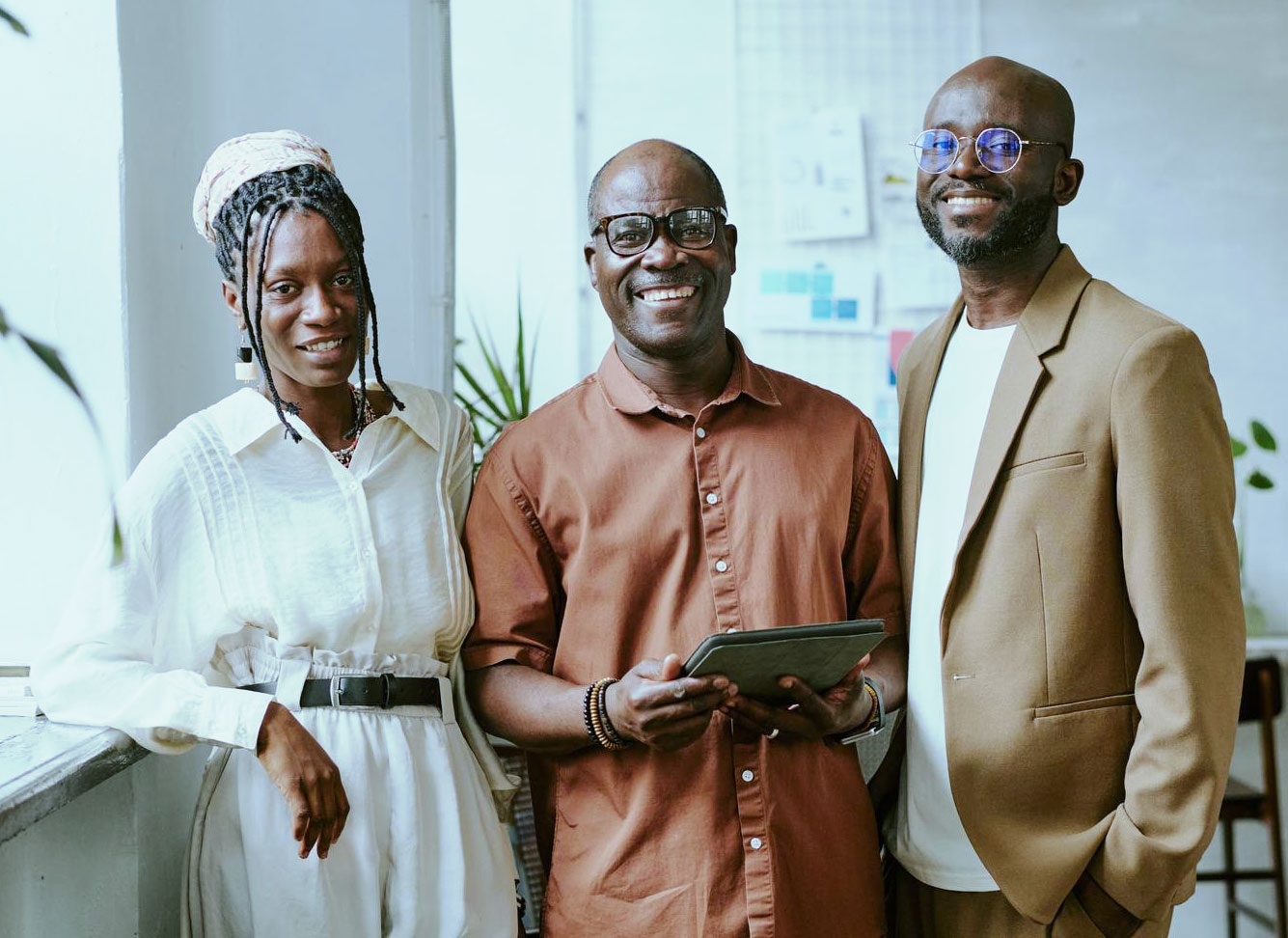
First published in Businessday.
A Good Man Dies
The clock was ticking. We knew he was going to die.
His organs were slowly shutting down. First, his bowels, then his kidneys. He had stopped eating three days ago and was now on a feeding tube.
There was talk about moving him from the public hospital to a private one, in a last-ditch effort to save him. The family had filed paperwork, and an ambulance was being arranged. Then, we got the unwelcome news in the evening that he had died.
The irony was, his wife had passed away in the same hospital barely six months earlier. A hospital he built for the Nigerian Air Force, as the first Medical Director in the city. His name still hangs on a plaque on the wall.
He was an Officer and a Gentleman. He was also my father.
Activities of Sorrow
It seems strange to be an “expert” at funerals. But when you have planned two in 6 months, you know the sequence of things in Africa.
If a person dies in a hospital, the doctor first makes the pronouncement before the body is moved to the mortuary. The death certificate is signed, and with this, you can move the body to a more long-term private mortuary. In Africa, funerals take weeks to organize. You don’t want the corpse to decay during that time. By the way, you pay for each day at the private facility, and it’s not cheap.
Then comes the tedious task of informing the immediate and extended family. The question is always asked, “When is the funeral?”, as if when a person died, your first thought Is their burial date. But again, this is Africa. People have to plan around celebrations of life. They come from far and wide to honor the dead and to participate in the festivities that accompany the demise of a patriarch.
While all of this is going on, you process the state’s death certificate as quickly as you can. The hospital’s documents are not enough. You need the state’s endorsement before an estate can go through probate. You also need it to inform former places of work so pensions can cease, to protect against the family being accused of illegally receiving payments after death.
Numerous family meetings are held to decide on a date, venue, and the color of the ‘Aso-Ebi’ – the traditional outfit for the event. You hire a caterer, officiating minister, ushers, and other contractors, particularly if it’s a large occasion. The sequence is all predictable.
Oh, and there’s little time to grieve. That comes after the funeral when your friends have long moved on, presuming you are now “okay”. Until then, all you have is the uneasy peace that comes from finality – the cessation of all your efforts to change the situation. Nothing you do now matters. Your dad is dead.
When the System Kills Good People
In the first few days after my Dad’s death, what I felt most was anger – rage at a system that unjustly treated an honest and hardworking man and sent him to his early grave.
The reward for not being corrupt as a public employee was a pension that could not pay for his prescription drugs. It was a doctor at the hospital he founded, calmly informing me that my dad was not going to make it.
And so, six children became adult orphans knowing their parents would never benefit from the fruits of their labor.
Child of My Parents
My dad was the intellectual in the family. A member of the Nigerian Air Force, he was a medical doctor with specializations in space medicine and pathology. He built 2 Air Force hospitals in Nigeria.
My mom was an entrepreneur. She ran four businesses at different times while raising six kids – a hospital, a restaurant, a fashion design store, and an NGO for Christian missionaries.
I am one of the six children that they co-created.
Why My Story Matters
My parents’ inability to build sustainable wealth from their savings and pensions is the reason for my obsessive mission to help the middle class to create wealth.
I believe it is a form of social injustice and economic inequity when there are glaring disparities in opportunities to develop wealth, and to access specialized healthcare.
It is a travesty when young people routinely opt to become internet fraudsters as a path to quick riches. When few people believe in meritocracy or feel they will be rewarded if they faithfully work for someone else. And so, young people are scorned for choosing to work for others instead of starting a business. But how do you build an industrial base in Africa without committed workers? If everyone becomes an entrepreneur, who will work in the factories and corporate offices?
Whenever small and medium-scale businesses struggle to scale or a middle-class family is unable to afford education for their kids, then these are middle-class problems. After all, the poor have more pressing concerns – how to eat to stay alive or how to secure housing to keep safe from the elements.
Why the Financial Empowerment of the Middle Class Matters
First, let’s start with definitions. Who is the African middle class?
There is no absolute definition however, based on the African Development Bank’s (AfDB) report, ‘The Middle of the Pyramid: Dynamics of the Middle Class in Africa‘, I would define them as working-class people in Africa or the Diaspora, who have disposable income to invest after taking care of basic living expenses.
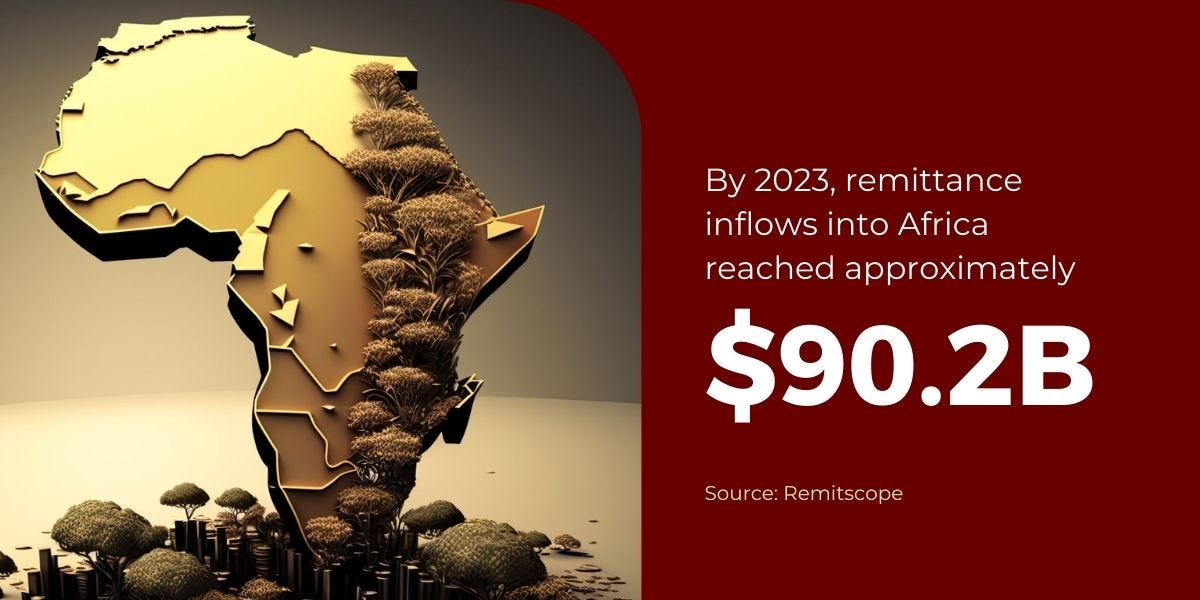
Diasporan Africans are an interesting group because they exert an outsized influence on Africa. They include legal immigrants who left Africa for jobs and a better quality of life; what we call “Japa” in Nigeria. This group is a significant source of remittances to Africa. By 2023, remittance inflows into Africa reached approximately $90.2 billion, which accounted for 5.2% of Africa’s total GDP and surpassed official development assistance or aid. As at 2022, Nigeria alone received nearly $21 billion, making up over 60% of West Africa’s total remittance inflows.
In this generation, the middle class is an undeniable force for socio-economic change. A United Nations policy brief projects that by 2060, Africa’s middle class could exceed 40% of the population.
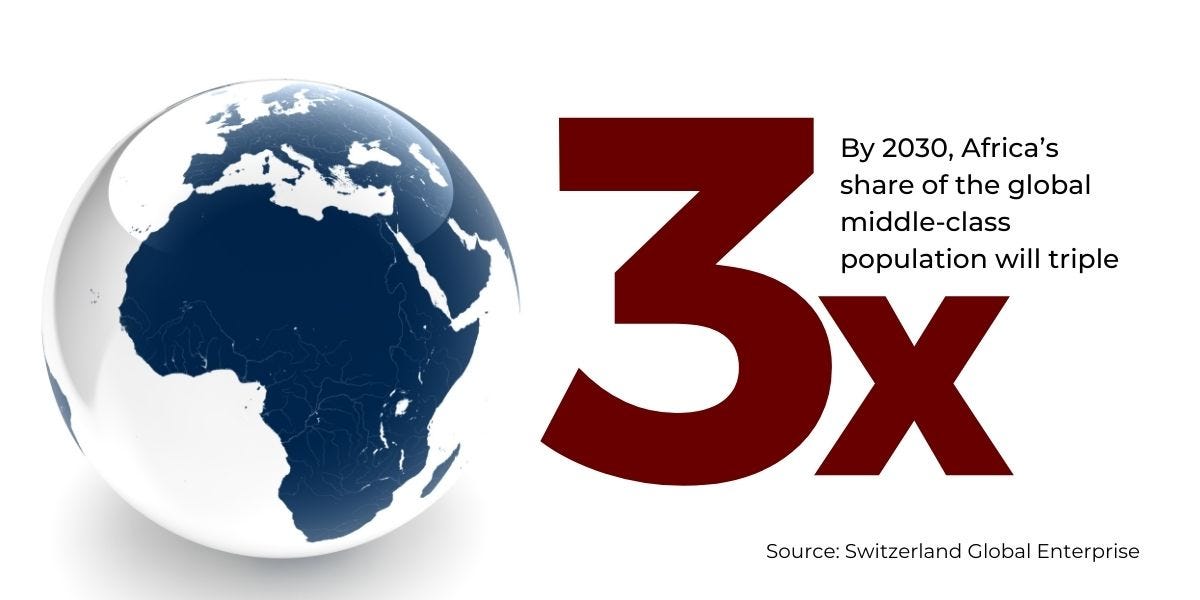
By 2030, Africa’s share of the global middle-class population will triple, creating a significant number of small and medium-scale businesses. An interesting point is that economic growth will largely be driven by women. This is because Africa is the only region in the world where more women than men choose to become entrepreneurs.
Ultimately, “Africa’s growing middle class will provide the continent with two of its most formidable assets: an expanding consumer market and a young workforce.” – Cristina Duarte, Under-Secretary-General and United Nations Special Adviser on Africa.
As the African middle class becomes more financially empowered, here are some potential impacts:
- Demand for governance and accountability, leading to better political outcomes: A financially empowered person has something to lose and protect. This is illustrated in a study focusing on Kenya, where the middle class is fostering democratic practices.
- Investment in education; improving human capital: According to the African Development Bank’s (AfDB) market brief, there is a high likelihood among the middle class to send their children to school, as this group prioritizes education.
- Attracting venture capital and foreign investments to new businesses: Middle class businesses can create jobs, and offer income-generating opportunities to the poor. This is indicated by venture capital trends in Africa.
- Boosting consumer demand and tax payments: The activities of the middle class will grow the economy.
- Strengthening social safety nets ensuring the most vulnerable are not left behind: In Africa, the concept of “Black Tax” is a social safety net, as families take care of their own.
In summation, here is what the UN has to say: “Fostering a thriving African middle class is not just an aspiration, it’s a strategic economic and social imperative for sustainable poverty reduction on the African continent.”
To put this more directly, the prosperity of Africa is linked to the prosperity of her middle class.
How to Financially Empower the Middle Class
In the US, research suggests that for the Black and Diaspora middle class to close existing ethnic wealth gaps, they must create wealth at least 7x faster than their current rate. A similar dynamic exists in Africa.
But, can wealth be accelerated without taking on the risks or deploying the capital that the rich do?
There are ways to mitigate risks and to pool significant capital among the middle class. But it will take cooperation. As the African proverb says, “If you want to go fast, go alone. But if you want to go far, go with others.”
Here are some models that can accelerate middle-class wealth:
1. Pooled Investing: In Africa, cooperatives (locally known as Esusu, Tortine, Susu, and other local names) have long provided a way for groups to band together to either negotiate higher rates for their goods or to collectively save. But the savings are collected and kept by a trusted member of the cooperative and are rarely invested.
However, a new model merges a fund management license with a cooperative in order to turn savings into active investments.
Thousands of voluntary cooperative members pool small amounts of capital to create an institutional fund. The fund is invested to yield similar rates of return as a hedge fund, but with a reduced risk profile. The value is passed on to the individual members of the cooperative.
This enhanced cooperative model is democratic and tax-advantaged. Everyone in the investment pool earns the same return, as long as they meet the minimum contribution.
Thus, the model harnesses Africa’s homegrown community savings model to create collective wealth. What’s more, the cooperative is a source of local venture capital if it invests in small and medium-scale businesses.
In the next 30 years, Africa will witness massive population growth, and so we must pay attention to financial innovations that can expand the middle class.
Poverty alleviation through foreign aid is not sustainable. Instead, Africa must fast-track the development of a middle class that can grow the economy and create jobs while providing social safety nets for the poor. There is an informal form of social welfare in Africa, euphemistically termed “Black Tax” in other parts of the world. But, in Africa it is a form of “Ubuntu” – interdependence and community.
2. Export Hubs & Accelerators: Export costs in Africa are notably high due to several factors, including transportation costs (especially in landlocked nations) and the bureaucratic delays (and fees) associated with various agencies.
Case in point is Nigeria, where a small business needs to interact with and pay several agencies, including:
- Nigerian Export Promotion Council (NEPC)
- Nigeria Customs Service (NCS)
- Standards Organisation of Nigeria (SON)
- National Agency for Food and Drug Administration and Control (NAFDAC)
- Federal Ministry of Agriculture and Rural Development (FMARD)
- Shipping Companies and Freight Forwarders
According to reports, the costs of exporting a 20-foot container from Nigeria can range from $1,600 to $2,300. In comparison, the costs to export from Benin Republic and Togo are significantly lower, often falling between $800 to $1,200 for similar services.
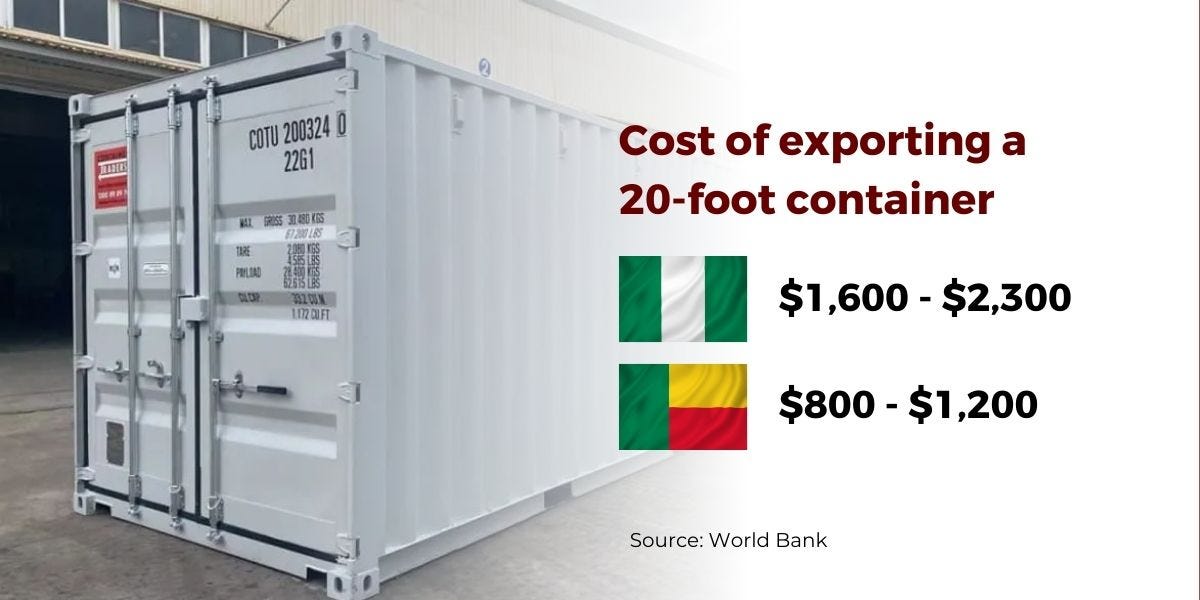
Africa needs to transform from an import and consumption-driven economy into an export and value-adding one. This transformation will position the continent as a crucial partner in global trade, and generate the resources that are required to develop on our own terms.
To facilitate this, we must develop the next generation of African exporters, starting with small & medium scale businesses who want to scale internationally. A small exporter should be able to use an app for their drop-off and inspection that’s as seamless as an Amazon locker.
Export hubs and accelerators should be created by governments to incubate these small export businesses. The hubs will provide access to finance, technology, branding, legal, logistics, global marketing, and so on.
3. The Creative Economy: The potential of Africa’s creative industry is massive, no small thanks to the continent being home to the world’s fastest-growing population of young people who drive the sector. By 2035, sub-Saharan Africa will have more working-age people than the rest of the world combined.
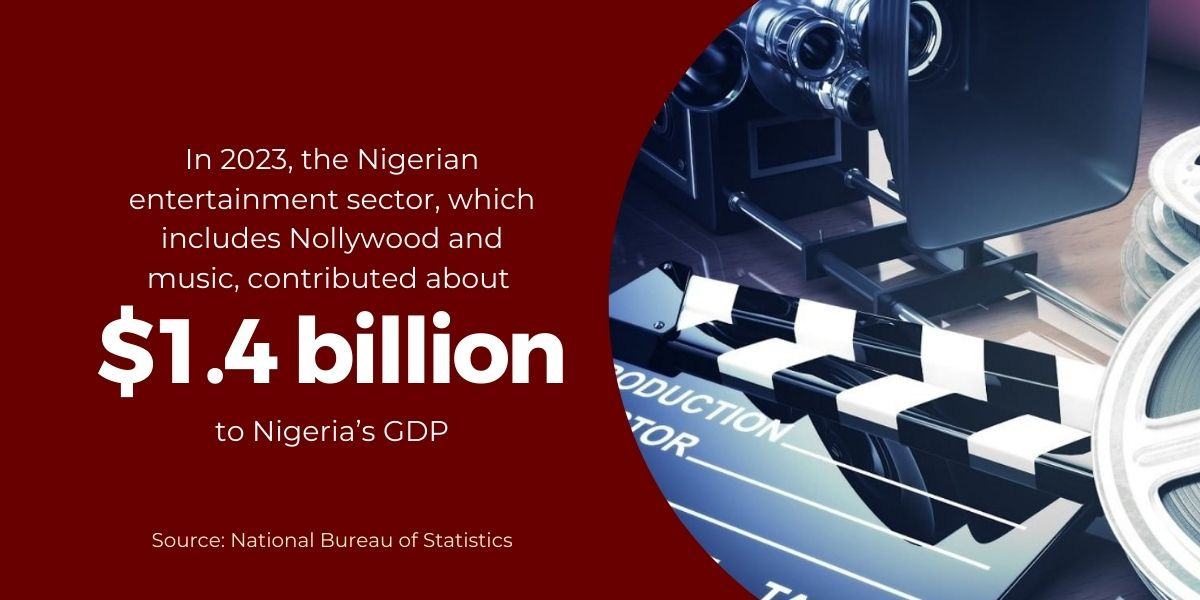
The potential of the creative economy is huge. In 2023, the Nigerian entertainment sector, which includes Nollywood and music, contributed about $1.4 billion to Nigeria’s GDP, marking a 27.46% increase from previous years. Nollywood accounted for 39% of Nigeria’s total box office revenue in 2024, amounting to $1.9 million out of the 2023 total box office revenue of $5 million. In 2023, Afrobeats reached over 7.1 billion streams on Spotify alone, marking a 550% increase since 2017, when it had around 2 billion streams.
The biggest stars in the world, including Beyoncé and Justin Bieber, have collaborated with Afrobeats artists. The movie rights to a Nigerian classic novel, Things Fall Apart, have just been acquired by a UK-based production studio.
The young middle class can leverage the growing potential of Africa’s creative industries to create wealth locally and internationally.
Interestingly, the creative economy is relevant in domestic markets. As the income of the middle class increases, they would want to spend more on entertainment. This includes attending events and buying art or hiring entertainers to provide services at private and corporate events.
Role of the Diaspora
The middle-class diaspora is a critical source of Angel Funding and global connections.
According to Moky Makura, the Executive Director of Africa No Filter, in addition to influencing global popular culture as we know it, the 160 million people who were born on the African continent but now live and work abroad in other parts of the world send remittances back to Africa.
In a report titled Bridging the Gap, I also highlighted that the African Diaspora has grown to become such an important source of foreign exchange for Africa, that the African Union (AU) has designated it as a sixth development ‘zone’; the others being West Africa, East Africa, Central Africa, Southern Africa, and North Africa.
Because members of the African diaspora tend to hold dual citizenship, they can legally form investment cooperatives in Africa to access higher returns on global assets or to create VC funds for local businesses. Diasporans have a better perception of global risk due to homeland connections and enjoy tax and currency incentives for remittances made to Africa.
In an increasingly globalized and interconnected world, the diaspora is important in any discussion about wealth creation for the African middle class.
Role of Government
In light of all that has been said, what is the role of the Government?
African governments can implement preferential tax policies for cooperatives aimed at middle-class wealth creation or business funding. Cooperatives are pivotal in community wealth-building, and the implementation of tax benefits for these entities will promote reinvestment, which leads to increased reserve funds for governments. Reinvestment serves as both an effective strategy for managing public spending and a resource to be channeled to small or pioneer businesses.
Entrepreneurship can be further encouraged among the middle class when the government grants tax holidays to small businesses, reducing financial strain and providing a safety net in their early stages of development.
To encourage the growth of the creative economy, the government needs to provide clear supportive tax incentives for entertainers and sportspeople.
For entrepreneurs who lack access to traditional funding sources, the government can lower capital gains taxes on investments in those businesses, thereby stimulating venture capital funding.
As earlier stated, Africa needs to transform into an export-driven economy. For this transformation to take place, African governments must first provide the basics – electricity, transport networks, communications infrastructure and security.
Then, the government must streamline export processes and reduce bureaucratic hurdles. If an entrepreneur can brave limited access to electricity, low workforce literacy, and opaque regulation to attempt export, they should not be frustrated by the agencies that ought to enable export.
Concluding Thoughts
The prosperity of Africa hinges on the empowerment of its middle class. All stakeholders – individuals, communities, the diaspora, and the government – must cooperate.
As the daughter of an honest civil servant, I will continue to play my part by advocating for this collaboration and by building companies that create middle-class wealth in Africa.
Thank you for reading.
The young middle class can leverage the growing potential of Africa’s creative industries to create wealth locally and internationally.
Share on X
Subomi Plumptre is the CEO of Volition Cap, an African SEC-licensed asset management firm working to bring financial prosperity to the middle class.
For more, read How to Invest in Nigeria.


